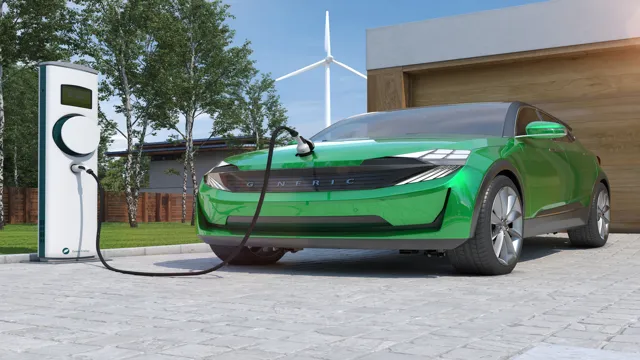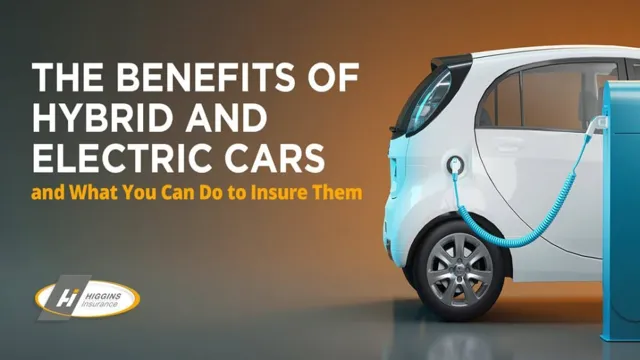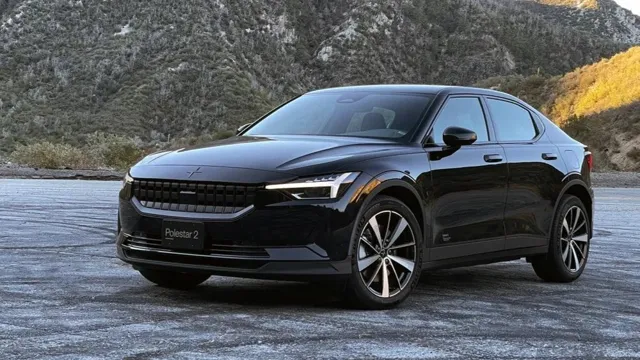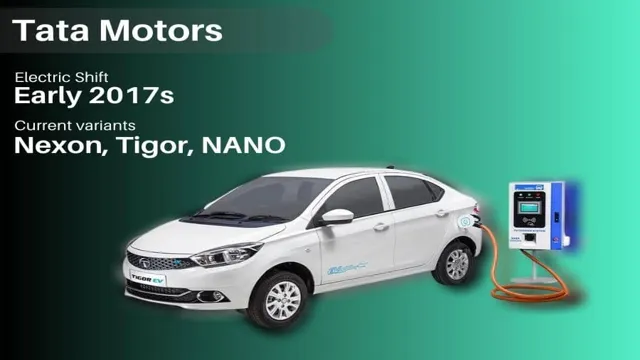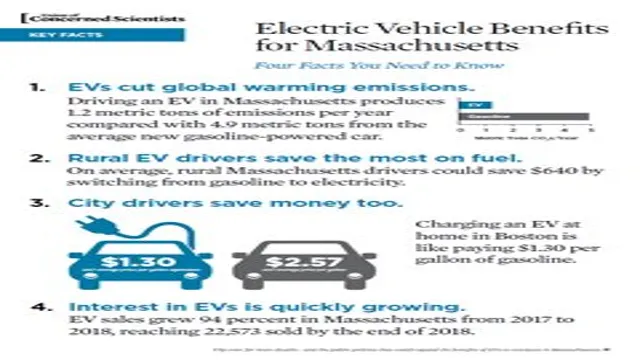Electrifying the Debate: Investigating Whether Electric Cars are Truly eco-Friendly
Electric cars have become increasingly popular in recent years as an environmentally friendly alternative to traditional gas-powered vehicles. But the question on everyone’s mind is, do these cars actually benefit the environment, or is it just a marketing ploy? Well, the answer is not as simple as yes or no. While electric cars produce zero emissions, the production and disposal of their batteries can have negative impacts on the environment.
So, let’s take a closer look at the environmental benefits and drawbacks of electric cars and see if they are truly a sustainable choice for the future of transportation.
Overview of electric cars
Electric cars are often promoted as a solution to environmental issues, but the question remains: do they actually benefit the environment? The answer is not a straightforward one. On the one hand, electric cars do not produce emissions when they are driven, making them cleaner than traditional gasoline-powered vehicles. On the other hand, the production of electric cars requires significant resources, including rare metals and large amounts of energy.
These materials must be mined and extracted, often leading to environmental degradation and pollution. Additionally, the production of electricity to power these vehicles may come from non-renewable sources such as coal, further contributing to environmental issues. Overall, while electric cars may reduce emissions during their usage, their environmental impact can be significant across their entire lifecycle.
Benefits of electric cars for the environment
Electric cars are one of the most promising advancements in the field of transportation. These vehicles rely on electric motors and batteries rather than burning fossil fuels to generate power, making them much less harmful to the environment. One of the most significant advantages of electric cars is that they generate zero carbon emissions, which means they do not release pollutants into the environment during operation.
This factor alone can significantly reduce the amount of air pollution, one of the leading contributors to climate change. However, the benefits don’t stop there. Electric cars also have a much higher fuel efficiency rate than traditional gasoline-powered cars, which means they require less energy input to cover the same distance.
As a result, they can significantly reduce carbon emissions and help lower our dependence on fossil fuels, making them a sound investment in the future of our planet. Overall, electric cars represent a promising way to help the environment, and their popularity is set to rise as more people become aware of their fantastic benefits.

Drawbacks of electric cars for the environment
While electric cars have many benefits for the environment, such as producing fewer emissions and using renewable energy sources, there are also some drawbacks to consider. First, the production of electric car batteries requires the mining of minerals such as lithium and cobalt, which can lead to environmental damage and harm to local communities where the mining takes place. Second, the electricity used to charge electric cars often still comes from non-renewable sources such as coal or natural gas, which can offset the emissions reduction benefits of driving an electric car.
Finally, once an electric car’s battery reaches the end of its life, it must be disposed of properly to prevent toxic chemicals from leaching into the environment. Despite these challenges, electric cars still offer a more environmentally-friendly option than traditional gasoline-powered cars, but continued progress and innovation are needed to address these concerns and make them an even better choice for the planet.
Electric cars vs. gasoline cars
When it comes to the debate between electric cars and gasoline cars, many people wonder if electric cars truly benefit the environment. While it’s true that electric cars produce zero emissions while driving and can be charged using renewable energy sources, the production of the car itself involves the use of materials and energy that can have negative environmental impacts. Additionally, the disposal of batteries can also be problematic if not done properly.
However, when looking at the overall life cycle of an electric car versus a gasoline car, studies suggest that electric cars still have a much lower environmental impact. So yes, electric cars do benefit the environment, but it’s important to acknowledge that they’re not without their own environmental challenges. Ultimately, the transition to electric cars will require a combination of improving technology, infrastructure, and sustainable manufacturing practices.
Comparison of environmental impact for both types
When it comes to environmental impact, electric cars have significant advantages over traditional gasoline cars. First and most notably, electric cars produce zero emissions, making them much cleaner for the environment and air quality. Gasoline cars, in contrast, release harmful pollutants and greenhouse gases that contribute to climate change.
Additionally, electric cars are more energy-efficient, meaning they require less energy to operate, and they often have longer lifespans due to their simpler mechanics. While both electric and gasoline cars require the extraction and processing of raw materials, electric cars tend to have a lower carbon footprint overall. Overall, electric cars are a much greener choice than gasoline cars and are better for the environment.
Factors that affect the environmental impact of electric cars
When it comes to the environmental impact of cars, electric cars have become the talk of the town. But how do they really compare to gasoline cars? Several factors affect the environmental impact of electric cars, including the source of the electricity used to charge them. If the electricity comes from renewable sources such as solar or wind power, electric cars have almost zero emissions.
However, if the source of electricity is coal-fired power plants, the emissions of electric cars can be equal to or even higher than those of gasoline cars. Additionally, the production and disposal of batteries used in electric cars can have potential environmental impacts. While gasoline cars emit pollutants directly from their tailpipes, the production of gasoline also has a significant impact on the environment.
All in all, both electric cars and gasoline cars have their environmental impacts, and it ultimately comes down to the source of energy and the production process.
Factors that affect the environmental impact of gasoline cars
When it comes to the environmental impact of cars, there are several factors that play a crucial role. Gasoline cars, for instance, are known to contribute significantly to air pollution due to their emissions. These emissions contain harmful pollutants such as carbon monoxide, nitrogen oxides, and sulfur dioxide.
Moreover, the extraction, production, and transportation of crude oil and gasoline add to the environmental footprint of gasoline cars. On the other hand, electric cars are known to be more environmentally friendly as they rely on renewable energy sources like wind turbines and solar panels. Not only do they emit zero emissions while driving, but the production of electricity also involves significantly less pollution than that of gasoline.
Therefore, it is apparent that the shift towards electric cars could have a significant impact on the environment.
Future of electric cars
When it comes to the future of electric cars, there’s no doubt that they will play a significant role in reducing greenhouse gas emissions and improving air quality in cities. However, there’s also a lot of debate about whether electric cars actually benefit the environment in the long-term. While it is true that producing the batteries for electric cars can be energy and resource-intensive, studies have shown that over the lifespan of the vehicle, electric cars do have a lower overall carbon footprint compared to traditional cars powered by gasoline or diesel.
In addition, as renewable energy sources like solar and wind become more common, the electricity used to power electric cars will become increasingly emissions-free. Ultimately, the benefits of electric cars in terms of reducing pollution and mitigating climate change far outweigh any potential negative environmental impacts associated with their production and use.
Potential for further environmental benefits
The future of electric cars holds immense potential for further environmental benefits. With the global markets shifting towards sustainable energy and eco-friendly practices, electric cars have emerged as an attractive alternative to traditional gasoline vehicles. In addition to reducing carbon emissions, electric vehicles are known for their energy efficiency and cost savings for the driver.
As technology continues to advance, manufacturers are beginning to focus on increasing the range of electric cars, making them more practical for longer journeys. In addition, investment in charging infrastructure continues to grow, enabling electric cars to reach newer markets and demographics. As adoption rates increase, experts predict that electric cars will continue to have a positive impact on the environment while providing a more sustainable mode of transportation for drivers.
Potential obstacles to widespread adoption
The future of electric cars is bright, but there are still potential obstacles to widespread adoption. One of the biggest concerns is the availability of charging infrastructure. Although there are more charging stations than ever before, some areas still lack sufficient options for drivers, which can be a source of anxiety for those who rely on their vehicles for daily use.
Additionally, the cost of electric vehicles can still be prohibitive for many consumers, despite incentives and rebates designed to make them more affordable. Finally, there is still a perception among some drivers that electric cars are unreliable or not powerful enough to compete with traditional gasoline-powered vehicles. However, as the technology continues to improve and more people embrace electric vehicles, these obstacles are likely to diminish over time.
After all, as the saying goes, “Rome wasn’t built in a day.”
Conclusion
Well, after diving into the facts and myths surrounding electric cars and their impact on the environment, we can confidently conclude that yes, electric cars do indeed benefit the environment. While not a cure-all for climate change and pollution, electric cars have significantly lower emissions and are much more energy-efficient than their gas-guzzling counterparts. Plus, with advancements in renewable energy sources, the electricity used to power electric cars can become even cleaner and more sustainable.
So next time you’re considering buying a new car, remember that electric cars not only save you money on gas but also help save the planet. Now that’s what we call a win-win situation.”
FAQs
How do electric cars benefit the environment?
Electric cars produce fewer emissions than gasoline cars, which means they have less of a negative impact on the environment.
What is the carbon footprint of electric cars?
While electric cars do have a carbon footprint, it is significantly smaller than gasoline cars due to the fact that they rely on electricity which can be generated from renewable sources.
What is the lifespan of an electric car battery?
The lifespan of an electric car battery depends on various factors, such as how often the battery is charged and the quality of the battery. However, most electric car batteries are designed to last between 8 to 10 years.
How much do electric cars cost to maintain?
Electric cars require less maintenance than gasoline cars, as they have fewer moving parts and do not require regular oil changes. On average, electric car maintenance costs are approximately 50% lower than gasoline cars.
